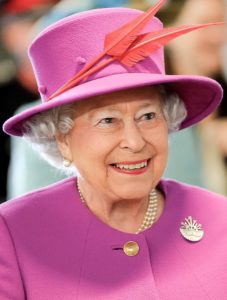By Balasubramanyam Chandramohan, Senior Research Fellow
 The implication that the Commonwealth has to rise from its ashes presupposes that the Commonwealth is already in terminal decline, and may even be on the pyre of history. Yet the modern Commonwealth is clearly viable: it has a future, and a bright future at that. The very fact that different member countries or sub-groups have found in the Commonwealth something worthwhile to belong to or to return to it if they were expelled or chose to leave demonstrates the value that countries small (e.g. Fiji) and big (e.g.Nigeria and South Africa) attach to its membership. This process of staying together as a ‘family’ is facilitated by its legal status (or to be precise, lack of it).
The implication that the Commonwealth has to rise from its ashes presupposes that the Commonwealth is already in terminal decline, and may even be on the pyre of history. Yet the modern Commonwealth is clearly viable: it has a future, and a bright future at that. The very fact that different member countries or sub-groups have found in the Commonwealth something worthwhile to belong to or to return to it if they were expelled or chose to leave demonstrates the value that countries small (e.g. Fiji) and big (e.g.Nigeria and South Africa) attach to its membership. This process of staying together as a ‘family’ is facilitated by its legal status (or to be precise, lack of it).
The Commonwealth is not a treaty-based organisation. Member countries that decided to leave the ‘family’ did not have to jump through extensive legal or procedural hoops. Similarly, countries that (re)joined the ‘family’ did not have to sacrifice existing links, such as membership of the Organisation Internationale de la Francophonie (OIF) in the case of Cameroon, or the Comunidade dos Países de Língua Portuguesa (CPLP) in the case of Mozambique. ‘Family’ members were free to try out other combinations of partners as in the case of India and South Africa, as members of BRICS (Brazil, Russia, India, China and South Africa) or IBSA (India-Brazil-South Africa Dialogue Forum). Five Commonwealth countries (UK, Canada, Australia, India and South Africa) are members of the G20 group (25 %!), and there are three Commonwealth countries in the European Union (Cyprus, Malta, and UK – at least until Brexit).
As a multi-national and multilateral organisation, the Commonwealth has a dynamic balance between the centripetal tendencies that keep it together, and the centrifugal forces that pull it apart. Very often, when not referring to colonial history or decolonisation as unifying factors, the symbolic, but crucial, factor of having the British Monarch as Head of the Commonwealth by tradition and consensus is highlighted. Individual countries could choose their own heads of state. Similarly, the shared inheritance of the English language is stressed by having it as the de facto working language in despite of such exceptions as Cameroon, Mozambique, and Rwanda. In matters of trade, one refers to the ‘Commonwealth Premium’, a saving of about 19% in transactional costs in intra-Commonwealth trade due, in part, to similarities in legal and administrative systems.
Politically, Commonwealth’s shared values formalised more recently as the Commonwealth Charter underpins its institutional forms. The Commonwealth’s cardinal belief in parliamentary democracy (as opposed to rule by the military) is enforced through sanctions imposed by the Commonwealth Ministerial Acton Group (CMAG) and the approval/legitimisation of electoral process though election observers, in some cases. It is perhaps the above political role, as an upholder of democracy/moderation/universalist values, that could help the Commonwealth to survive the rising tide of extremism and replacement of liberal democratic principles and values by political orders that, through economic success, or religious certitudes, seek to present themselves as more attractive alternatives.
The Commonwealth has survived divisions and disagreements based on polarisations based on perceived lop-sided budget contributions/lack of value for money; issues foregrounded/reinforced by moral stance/regional identities (such as its stance on Apartheid or Human Rights); and, leveraging strength in numbers based on unique characteristics (small states) in order to work for designated support provisions. There were/are also more significant ideological differences over primacy of Human Rights over Development; or, between supporters and opponents of LGBT rights. On occasions, especially on strategies to deal with Human Rights violations in member countries, the differences boiled over leading to a boycott of some events by particular countries/organisations.
The rhetorical question, ‘Is Commonwealth relevant anymore?’ has been raised time and again when there is a feeling of ‘mission accomplished’ about a major issue, or frustration with the failure of the organisation to act decisively. On the other hand, those that see continued relevance of the Commonwealth claim with zeal and enthusiasm, sometimes misplaced, that the Commonwealth is a silver bullet to sort out their national and regional crises. In the run up to the referendum in the UK in 2017 on its membership of the EU, some commentators argued that rediscovering and intensifying Commonwealth connections in its present from or in its earlier formulations (Empire 2.0/Anglosphere) can compensate the loss of links/trade with the EU.
The Commonwealth operates at multiple levels, reflecting layers of continuity and change that the organisation has undergone in response to historical events and shifting geopolitics. The organisations and associations accredited to the Commonwealth pursue primarily their own selective interests, and pursue advocacy remits provided by their members, sometimes working even outside the 50+ member countries, such as the 2018 Association of Commonwealth Universities (ACU) Summer School in Hong Kong. This loose organisational structure makes it possible to take an official stance on specific issues by the ‘official’ Commonwealth, the Commonwealth Secretariat, while allowing professional/civil society organisations to work on Track 2 Diplomacy sustaining people-to-people contacts even if their governments were excluded from, or if they have chosen to exit, the organisation.
As mentioned earlier, the Commonwealth is not constrained by treaty obligations. Its loose but rooted structures sprout resilience and relevance that member states uncover/discover as solutions at moments of stress/crises. Its flexible links act as mangrove forests that mitigate the effects of tsunamis of disappointment, anger and frustration at the real and perceived failings of the Commonwealth as an organisation, or, as a people’s movement, or, as a bilateral/plurilateral/multilateral trade partner/facilitator.


Recent Comments